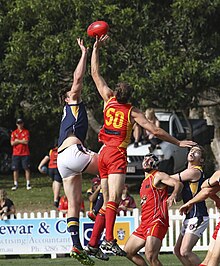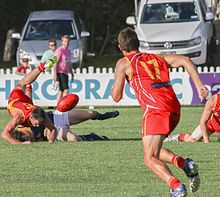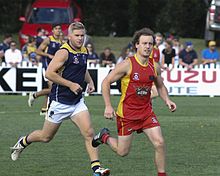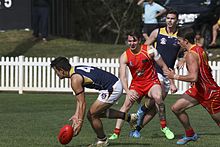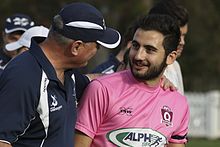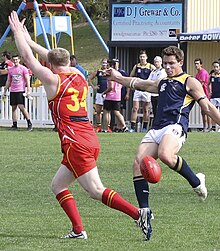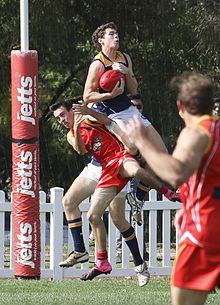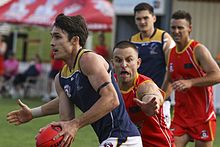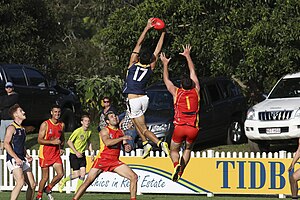
This list is an alphabetical glossary of Australian rules football terms, jargon and slang. While some of these entries are shared with other sports, Australian rules football has developed a unique and rich terminology.
Where words in a sentence are also defined elsewhere in this article, they appear in italics.
